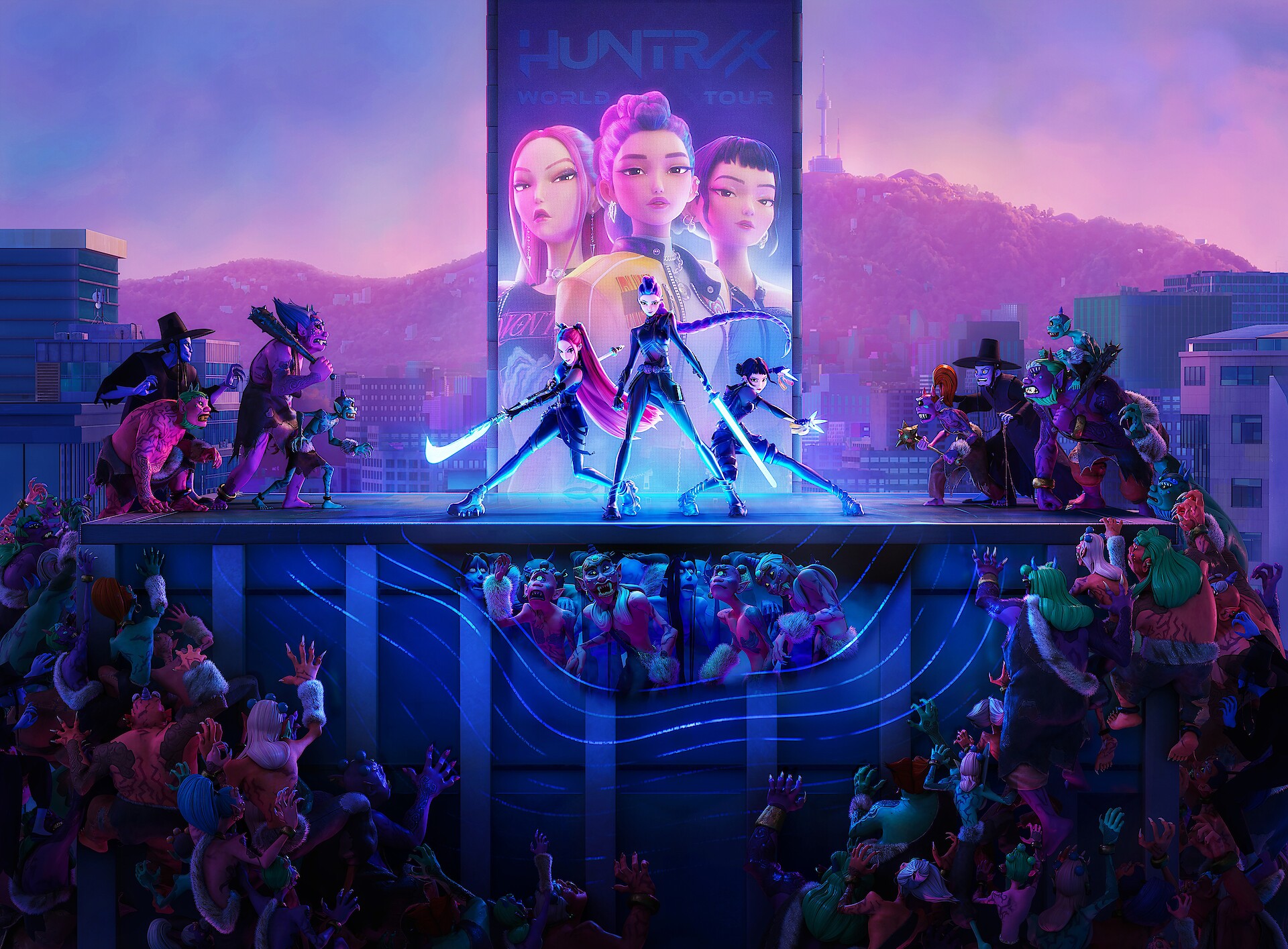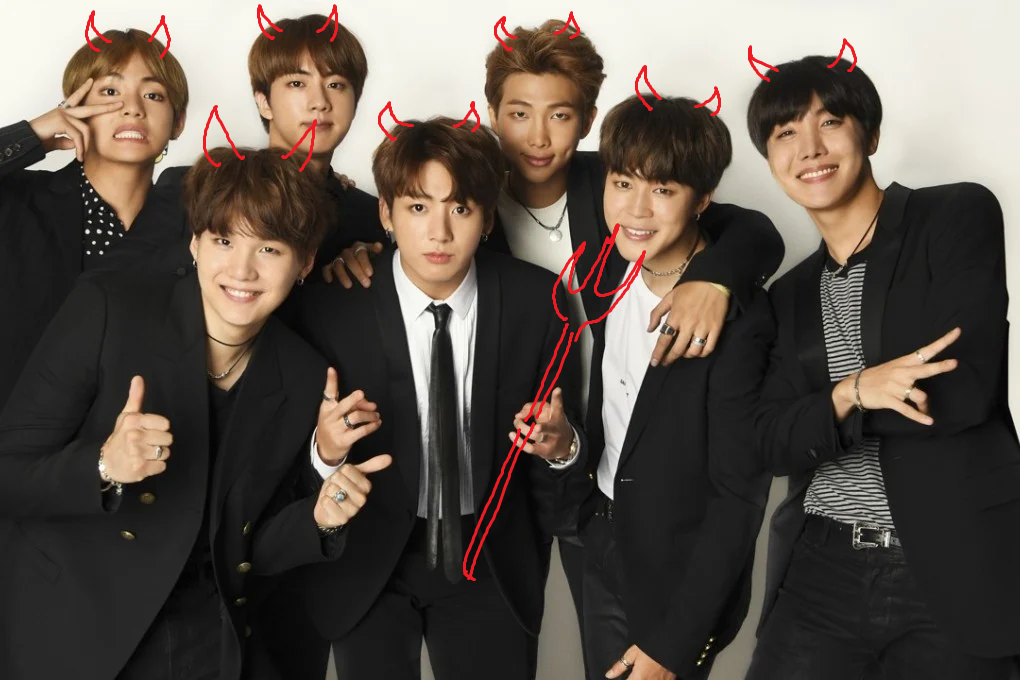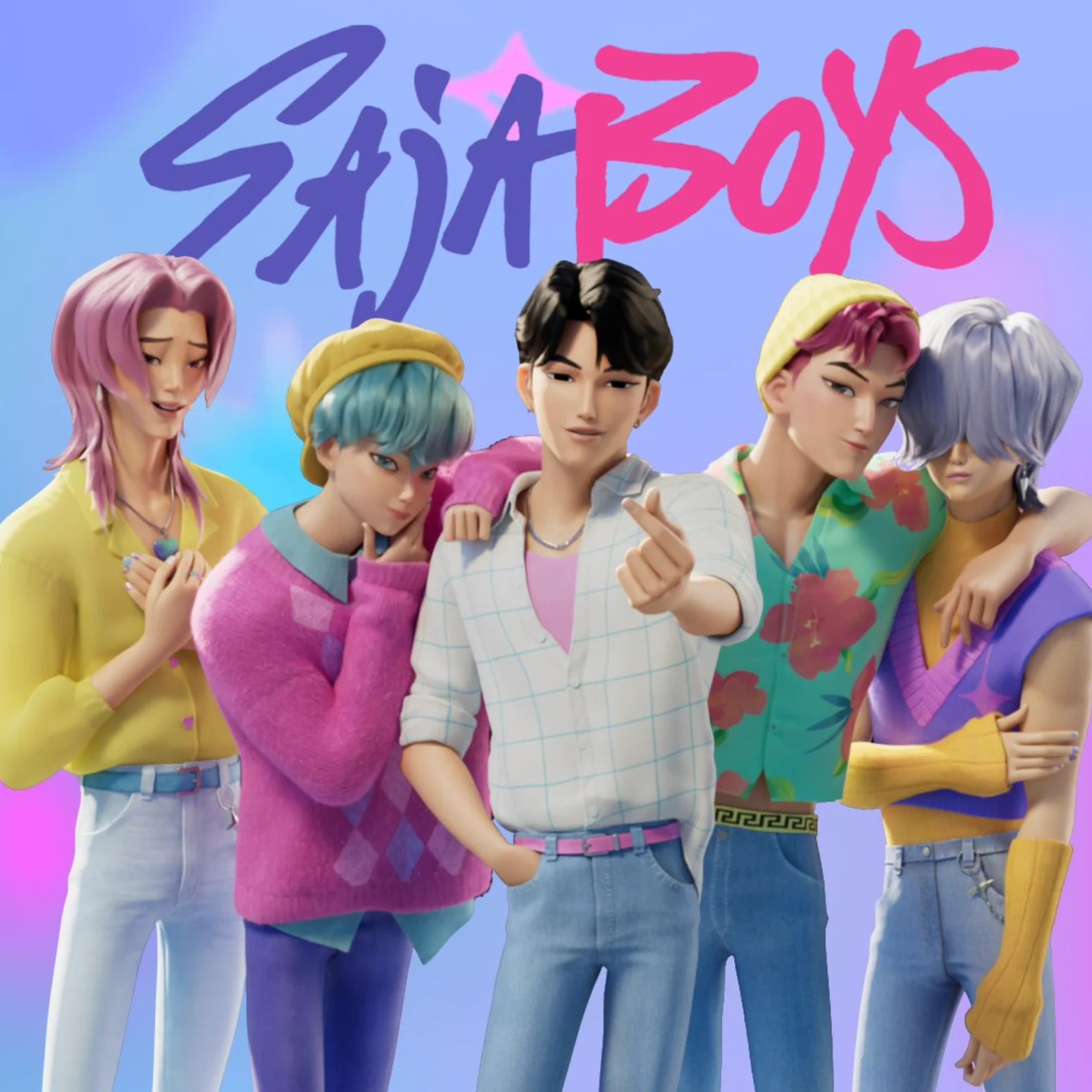KPop Demon Hunters is Christian propaganda
I know this sounds crazy but hear me out. This is a good thing. All these GenZ's and TikTok babies need Jesus. For real, though. But let's not get ahead of ourselves now. A little patience goes a long way.
What is KPop Demon Hunters?
Short answer: K-pop girl group fights evil boy group to safeguard humanity from falling prey to a demon overlord. Long answer: just watch the movie. Seriously. It's surprisingly good. Goofy and absurd but way deeper and more sentimental than you'd expect. Either way, this review contains spoilers as I will be analyzing scenes and discussing the story.
KPop Demon Hunters is a very fast-paced animated musical that lore-dumps on the unexpecting watcher as much as it can. But somehow this all works out. Towards the end of the movie, the snow finally began to settle as our thoughts pieced together, and my friend and I came to a conclusion: this movie is Christian. It wasn't the wine, we were certain. It was all so clear: the themes and motives, the imagery, everything. A Christian tale wrapped in shiny cellophane to appeal to the new generation, all so brainwashed and lost. Perhaps this is the way to salvation.
The Devil's whisper
The girl group, HUNTR/X, are the latest reincarnation of the Hunters, three female singers who saved the world from Gwi-Ma, the demon overlord and his minions. They created the Honmoon which acts as a barrier, not allowing demons to pass through to the human realm. With their songs, the Hunters connect people and strengthen the Honmoon. Their goal is to make the barrier so strong that it can banish demons forever, and our three girls are very close to that. However, Gwi-Ma will not stand and watch. He deploys a rival boy group, the Saja Boys, to steal HUNTR/X's fans, along with their souls. They quickly rise to popularity, seeming like nice guys, giving candy to strangers and making the world a colourful place when they perform their debut ultra-catchy song, Soda Pop. But they are to be feared, wolves in sheep's clothing.
Demons and devils are standard apparitions in Christianity and other religions. We can easily find a parallel between Satan and Gwi-Ma, both being the rulers of the realm of demons. It turns out demons are humans who have been trapped by their shame. The exact nature of demons is not explained clearly, but it seems that there are different types, since some look more human, like the Saja Boys, some are more "traditional"-looking, and there are even animal-shaped creatures (Jinu's sidekicks). Nevertheless, Gwi-Ma's voices keep reminding those caught in his grasps of their shame, keeping them enslaved. Jinu is the prime example. A man with a good voice, who accepted a deal with the Devil to gain the Emperor's appreciation, rising to fame only to inevitably be condemned to an existence of guilt and suffering because he abandoned his family.
The demons whisper in the ears of mortals, promising whatever they may need, riches, fame, or love. And once the person gives in, the demon collects their soul, feeding it to Gwi-Ma, whose flame that grows larger with every soul he consumes. While this is not exactly what demons do in the Bible, their role is still to tempt humans, to convince them to sin. Indeed, there is a "war for souls", just like the HUNTR/X and the Saja Boys fighting over fans.
Decalogue
"You shall not make idols" is one of the ten commandments given by God to Moses. In K-pop terms, the members of a group are usually called idols, and their fans can become so obssesed as to essentially worship these people. Moreover, in the movie, the Saja Boys, after destroying the Honmoon and conquering Earth, sing the song "Your idol", in which they describe how they can be their fans' saviours.
In the beginning of the song we repeatedly hear the words "Pray for me now", indicating the humans falling for these fake idols, praying for them as if they were God. This phrase is followed by some other words which reference the following phrases:
- "Dies Irae, Dies Illa, Solvet saeclum in favilla" translates to "Day of wrath, that day will dissolve the world in ashes" (Genius lyrics). This is a reference to the Judgement Day, the final judgement of all people who have ever lived, resulting in their eternal salvation or damnation.
- "Maledictus erus in flamas eternum" means "cursed master, eternal in flames" (Genius lyrics). Clearly, this references Gwi-Ma.
The rest of the song talks about the enslavement of people by Gwi-Ma through their devotion to the Saja Boys. This situation reflects reality, where K-pop fans become truly obsessed by these idols, almost divinizing them. To a certain extent this also happens with western celebrities, where fans follow their every move. People have been putting celebrities on a pedestal, separating them from the masses in a similar fashion to praising them like untouchable gods.
The internet has made it easier than ever to create such false gods. The uninterrupted and constant on-line connection between people devalued genuine human interactions. There is a button for everything, from knowledge and entertainment to sex and pleasure, so why would anyone set on the more difficult path of forging real-life relationships which require time investments? On the internet, nothing is impossible. So people lose their individuality, becoming a slushie of celebrities and insecurities, unconsciously looking for someone or something to save them from the hell they created.
The path to salvation
Rumi and Jinu are both plagued by guilt, Rumi getting closer to her downfall, while Jinu had already fallen long ago. But once they admit to their shame, once they confess what weighs heavily on their soul, they are led to salvation. Rumi reunites with Mira and Zoey to fight together, saving humanity. Jinu, although seemingly too far gone on the path of sin, is liberated, obtaining salvation, when he jumps in to save Rumi, giving her his strength in order to defeat Gwi-Ma.
The Bible teaches us that "If we confess our sins, He is faithful and just to forgive us our sins and to cleanse us from all unrighteousness." John 1:9. Accepting and confessing our sinful nature, not only to ourselves but also to the ones around us is the first step towards salvation, just like the first step to solving a problem is to recognize that you have a problem. Anyone, not matter how deep in sin, can be saved.
The Seven Deadly Sins
As a bonus, the seven deadly sins can also be found in the movie, albeit somewhat in disguise (and not the complete package).
Lust is portrayed in the form the Saja Boys take, especially Abs. His defining characteristic is his six pack, as his name suggests, and the girls are quickly disarmed by this, even if just for a few moments. Gluttony appears in the scenes where the trio prepare for their show, right at the beginning of the movie. They gulp down lots of food, not even chewing. This is likely just for comedic effect, but it is undeniable that it is a display of hedonism. Greed is the industry, the endless chase to make money, gain more fans and popularity. Wrath can be seen in the girls' instinct to make a "diss track" in response to the Saja Boys. No wonder it was never meant to be the track with which they would win the Idol Awards.
The last three, pride, envy and sloth, I could not pinpoint.
The point
While this movie ends well, life is not always like this. People become more and more tangled in sin and accumulate shame and hatred. The values and morals once so cherished are fading. It is easier than ever to influence the masses. We should not allow ourselves to be hypnotized by the flute of the devil, and if we fall pray, we should help each other to snap out of it.
But perhaps what this movie wants to say is that boy bands are actually the devil. So there you go, Karen, you are justified to shout at your koreaboo kid.


